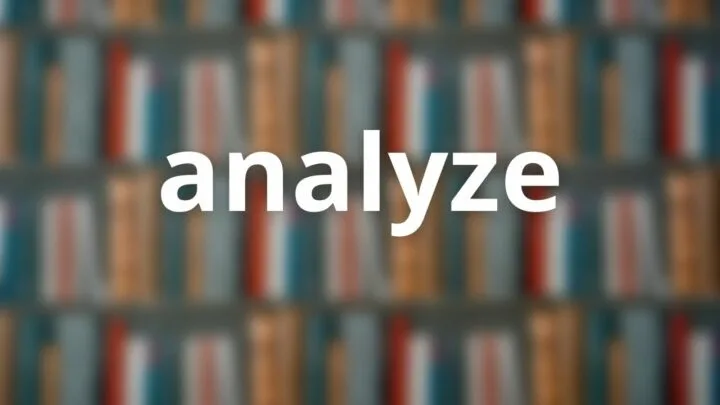Sometimes, knowing the definition of a word is not really enough.
Sometimes, you also need to see how it can be used in various types of sentences to really understand it.
In the blog post below, we’ll show you some examples of how “analyze” is used in a sentence. This will help you rest easy in the knowledge that you don’t just know the definition but you can also use it correctly.
How do you use the word “analyze” in a sentence?
“Analyze” is a regular transitive verb. It means to examine or study something carefully and make new conclusions about or connections between data. You can analyze many things, including information, people and situations. As a transitive verb, “analyze” is usually followed by a direct object.
What is the grammatical background of “analyze”?
“Analyze” always acts as a verb in a sentence. It is used and conjugated like any other regular verb that ends with “-er.”
“To analyze” is the infinitive, and “analyze” is the present tense form of the verb except for third-person singular, when it needs to have an “s” added.
It is a transitive verb, meaning that it always needs a direct object. You must always be analyzing something or someone.
You probably know that English is a global language. In the United States, “analyze” is the correct spelling, but in the rest of the English-speaking world, the word is spelled “analyse.”
You will see both versions used in Canada.
How is “analyze” used in a sentence?
When you analyze something, you study it, but this is only one part of analyzing. In addition to studying it, you draw conclusions about or you look at how it connects to other things or pieces of information.
As a verb, “analyze” can move about pretty freely, coming at the beginning or middle of a sentence.
It can also come near the end of the sentence. However, because it is a transitive verb, it will never be the last word in a sentence since it always has to take a direct object.
Remember, a direct object is the thing that receives the action of the verb.
Let’s take a look at the word in different positions.
“Analyze” at the beginning of a sentence
At the beginning of a sentence, “analyze” acts as a command.
Note that it is common to see this word in scientific, mathematic and other academic contexts:
Although there are many different things that can be analyzed, one word that it is often paired with as the direct object is “data”:
“Analyze” in the middle of a sentence
It’s not just equations, experiment results, and data that can be analyzed. Many other things can be too.
Here are a few examples of the word occurring in the middle of a sentence:
“Analyze” near the end of a sentence
As mentioned above, you won’t see “analyze” at the very end of a sentence because it always needs to be followed by a direct object.
However, you may see it nearly at the end, followed only by that direct object:

Hey fellow Linguaholics! It’s me, Marcel. I am the proud owner of linguaholic.com. Languages have always been my passion and I have studied Linguistics, Computational Linguistics and Sinology at the University of Zurich. It is my utmost pleasure to share with all of you guys what I know about languages and linguistics in general.

